
Founder and Executive Director
Bia Labate – Co-Founder and Executive Director
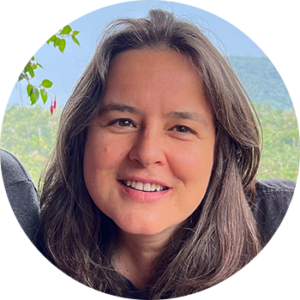 Dr. Beatriz Caiuby Labate (Bia Labate) is a queer Brazilian anthropologist based in San Francisco. She has a Ph.D. in social anthropology from the University of Campinas (UNICAMP), Brazil. Her main areas of interest are the study of plant medicines, drug policy, shamanism, ritual, religion, and social justice. She is Executive Director of the Chacruna Institute for Psychedelic Plant Medicines and serves as Public Education and Culture Specialist at the Multidisciplinary Association for Psychedelic Studies (MAPS). She is also Visiting Scholar at the Graduate Theological Union in Berkeley. Additionally, she is Advisor for the Veteran Mental Health Leadership Coalition. Dr. Labate is a co-founder of the Interdisciplinary Group for Psychoactive Studies (NEIP) in Brazil and editor of its site. She is author, co-author, and co-editor of twenty-eight books, three special-edition journals, and several peer-reviewed articles (https://bialabate.net).
Dr. Beatriz Caiuby Labate (Bia Labate) is a queer Brazilian anthropologist based in San Francisco. She has a Ph.D. in social anthropology from the University of Campinas (UNICAMP), Brazil. Her main areas of interest are the study of plant medicines, drug policy, shamanism, ritual, religion, and social justice. She is Executive Director of the Chacruna Institute for Psychedelic Plant Medicines and serves as Public Education and Culture Specialist at the Multidisciplinary Association for Psychedelic Studies (MAPS). She is also Visiting Scholar at the Graduate Theological Union in Berkeley. Additionally, she is Advisor for the Veteran Mental Health Leadership Coalition. Dr. Labate is a co-founder of the Interdisciplinary Group for Psychoactive Studies (NEIP) in Brazil and editor of its site. She is author, co-author, and co-editor of twenty-eight books, three special-edition journals, and several peer-reviewed articles (https://bialabate.net).
Board Directors
Clancy Cavnar – Co-Founder and Secretary
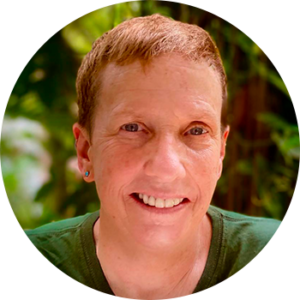 Clancy Cavnar has a doctorate in clinical psychology (Psy.D.) from John F. Kennedy University in Pleasant Hill, CA. She currently works in private practice in San Francisco, and is Co-Founder and a member of the Board of Directors of the Chacruna Institute for Psychedelic Plant Medicines. She is also a research associate of the Interdisciplinary Group for Psychoactive Studies (NEIP). She combines an eclectic array of interests and activities as clinical psychologist, artist, and researcher. She has a master of fine arts in painting from the San Francisco Art Institute, a master’s in counseling from San Francisco State University, and she completed the Certificate in Psychedelic-Assisted Therapy program at the California Institute of Integral Studies (CIIS). She is author and co-author of articles in several peer-reviewed journals and co-editor, with Beatriz Caiuby Labate, of eleven books. For more information see: http://www.drclancycavnar.com.
Clancy Cavnar has a doctorate in clinical psychology (Psy.D.) from John F. Kennedy University in Pleasant Hill, CA. She currently works in private practice in San Francisco, and is Co-Founder and a member of the Board of Directors of the Chacruna Institute for Psychedelic Plant Medicines. She is also a research associate of the Interdisciplinary Group for Psychoactive Studies (NEIP). She combines an eclectic array of interests and activities as clinical psychologist, artist, and researcher. She has a master of fine arts in painting from the San Francisco Art Institute, a master’s in counseling from San Francisco State University, and she completed the Certificate in Psychedelic-Assisted Therapy program at the California Institute of Integral Studies (CIIS). She is author and co-author of articles in several peer-reviewed journals and co-editor, with Beatriz Caiuby Labate, of eleven books. For more information see: http://www.drclancycavnar.com.
Jamie Beachy – Chair of the Board of Directors
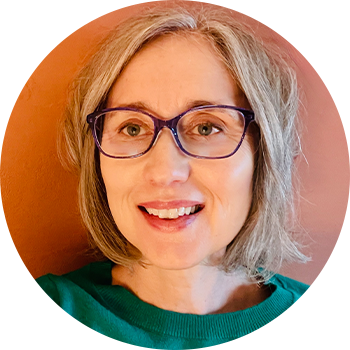
Jamie Beachy PhD, MDiv, is a professional chaplain, spiritual care educator, and ethics consultant with experience in palliative care, hospice, and trauma care. Jamie was a sub-investigator for MAPS Phase 3 clinical trials researching the safety and efficacy of MDMA-Assisted Therapy for the treatment of PTSD and currently serves as an MDMA-AT associate supervisor. Jamie developed degree program offerings and curricula related to psychedelic therapies as Director of Education and Co-founder of Naropa University’s Center for Psychedelic Studies. She is currently Field Scholar with Emory’ University’s Center for Psychedelics and Spirituality. Jamie sits on the Board of Directors of the Chacruna Institute for Psychedelic Plant Medicines. She lives in the mountains above Boulder with her husband Wael Garas, an integrative physician.
Sean Carr – Treasurer
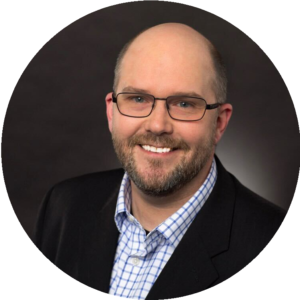 Sean Carr is a business and technology leader who currently lives and works in the San Francisco Bay Area. He has spent his career consulting for large enterprise companies across multiple industries, including technology, healthcare life sciences, and hospitality, to drive complex organizational transformations that align people with the processes and technology needed for success. Sean is also a lifelong student of both science and spirituality. He has a passion for the ceremonial use of sacred plants, and is committed to promoting equitable access to psychedelic medicines and reciprocity for the Indigenous communities that have held this knowledge for thousands of years. Sean is a member of Chacruna’s Board of Directors.
Sean Carr is a business and technology leader who currently lives and works in the San Francisco Bay Area. He has spent his career consulting for large enterprise companies across multiple industries, including technology, healthcare life sciences, and hospitality, to drive complex organizational transformations that align people with the processes and technology needed for success. Sean is also a lifelong student of both science and spirituality. He has a passion for the ceremonial use of sacred plants, and is committed to promoting equitable access to psychedelic medicines and reciprocity for the Indigenous communities that have held this knowledge for thousands of years. Sean is a member of Chacruna’s Board of Directors.
Coltrane Lord– Board Member

Coltrane Lord is a first generation American from the Philippines who knows first hand the power of plant medicine for healing severe trauma. Her journey from trauma to transcendence led Coltrane to be a passionate advocate for plant medicine and marginalized women. Coltrane is a philanthropist, psychedelic integration specialist, artist, and mom. She is also the founder of the Wonderland Project, a nonprofit organization that offers scholarships to plant medicine and psychedelic therapies and integration for marginalized women who suffer PTSD due to domestic violence, rape, or sexual exploitation. Coltrane is interested in the intersection of spirituality and science, ancient wisdom for modern times, and how our unique perspectives can merge to elevate the soul of humanity and reverence for the planet. She sits on the Board of Directors of the Chacruna Institute for Psychedelic Plant Medicines.
Darron T. Smith – Board Member

Darron T. Smith is associate professor in the Department of Family Medicine at the University of Washington. He is also Co-Director at The Center of Novel Therapeutics in Addiction Psychiatry. He is a physician assistant and US Army veteran with over twenty years of healthcare-related experience as an educator and mental health practitioner. Dr. Smith has trained with MAPS’ MDMA-assisted therapy. His research and scholarship examine US-based systems of racial oppression and systemic inequality in all societal domains, including healthcare, the family (transracial adoption), healthcare disparities, addiction, religion, sport, culture, and politics. Dr. Smith’s current research and practice intertwine the study of applied neuroscience, race-based trauma, and mental illness by looking at the impact of EEG biofeedback versus MDMA-assisted psychotherapy on brainwave activity in individuals with racial trauma (PTSD) using EEG technology. Dr. Smith is an American Psychedelic Prescribers Association (APPA) board member. He also serves on the Board of Directors for the Chacruna Institute for Psychedelic Plant Medicines
Sean McAllister– Board Member

Sean T. McAllister is an attorney specializing in the intersection of regulatory and corporate law, and also is an experienced commercial litigator. He has been a leader in the emerging industries of cannabis, hemp, and psychedelic medicines. Sean is licensed to practice law in Colorado and California. His work in psychedelics has included: Advised clients on what is allowed in cities that have decriminalized psychedelics; Advised clients looking to obtain a religious exemption from criminal law for the use of psychedelics under the Religious Freedom Restoration Act; Seeking DEA licensure for companies to manufacture Schedule I drugs lawfully in the United States; Steering committee member on Colorado’s Natural Medicine Health Act; Executive Officer of the Denver Psilocybin Mushroom Policy Review Panel, 2020; Co-counsel for Church of the Eagle and the Condor in a lawsuit against DEA to gain recognition as an ayahuasca church; General Counsel for of the non-profit organization Zendo; member of the Board of Directors for the Chacruna Institute for Psychedelic Plant Medicines and of Chacruna’s Council for the Protection of Sacred Plants.
Dr. Sonya Faber – Board Member
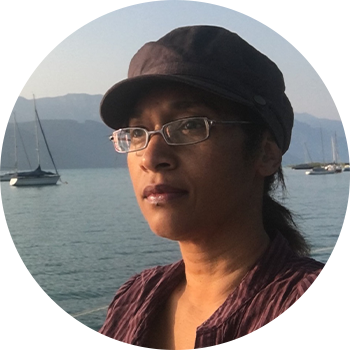
Dr. Sonya Faber graduated with a Masters in Neurobiology from Brown University after completing her undergraduate work at the University of Pennsylvania. She continued her graduate studies at New York University earning a PhD in molecular genetics with a thesis concentration in signal transduction. Over the course of the last 15 years, she has had the opportunity and privilege to contribute equally to both academic research institutes and commercial pharmaceutical development. She has worked in clinical operations for companies including, IQVIA, Covance and Sanofi-Aventis. Her interests lie in creating innovative solutions for projects which could benefit both patients and the scientific community, in part by connecting with top scientists, industry and regulatory agencies.In her academic roles, she assessed novel ideas and supported scientists in making these commercially viable while contributing to several original grants and research papers and patents. Her interest in protocol design, medical writing and project management, which she utilized in both pharma and biotech firms, included pre-clinical and clinical activities for phase II and III trials across multiple indications. She has a special interest in training the next generation of clinical researchers and has designed courses to teach scientific writing and Good Clinical Practice. Dr. Faber is member of the Board Directors of the Chacruna Institute for Psychedelic Plant Medicines and serves on Chacruna’s Racial Equity and Access Committee. Her engagement on Chacruna is on a volunteer basis and is based on her personal interest in the science of psychedelics, which has long been an interest of hers before taking her current position at Angelini Pharma. In the past two years, she has started an international collaboration with researchers at the University of Ottawa in Canada on several projects in the area of mental health disparities and social justice. She also served on the steering committee for the American Psychedelic Practitioners Association.
Joseph McCowan – Board Member
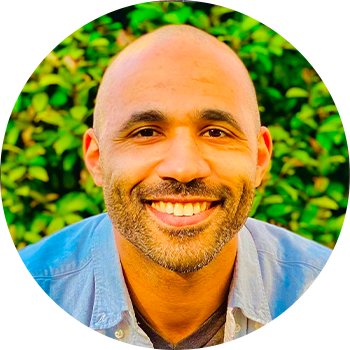
Joseph McCowan, PsyD, is a licensed clinical psychologist and researcher, currently working in Los Angeles. He received his undergraduate degree in psychology from the University of California, Santa Barbara, and his doctorate in clinical psychology from the Chicago School of Professional Psychology. Since 2019, Joseph worked as a Co-therapist and Supervisor in the MAPS sponsored Phase 3 clinical trials of MDMA-Assisted Therapy for PTSD and supports MAPS Therapy Training and Education as a Lead Educator and Supervisor. Additionally, Dr. McCowan supported efforts toward increasing the diversity of therapists and participants in the MAPS clinical studies as part of the MAPS Diversity Working Group. Dr. McCowan also currently conducts research as a therapist in the Compass Phase III Studies of Psilocybin-Assisted Therapy for Treatment Resistant Depression and provides Psychedelic assisted therapy education as a lead trainer with Fluence. Joseph’s prior work includes providing Ketamine Assisted Therapy and Psychedelic Integration Therapy at the California Center for Psychedelic Therapy. Joseph is deeply passionate about furthering education and awareness of the healing benefits of psychedelics for communities of color and in working to improve mental health outcomes for historically underserved communities. He is a member of Chacruna’s Board of Directors.
Staff
IRI Program Director
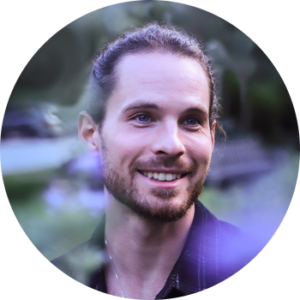
Research Coordinator
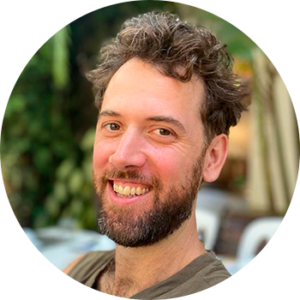
Program Coordinator
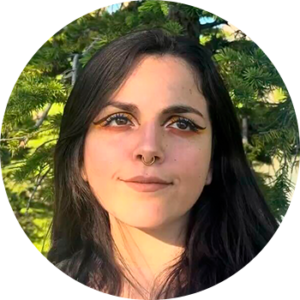
Project Coordinator
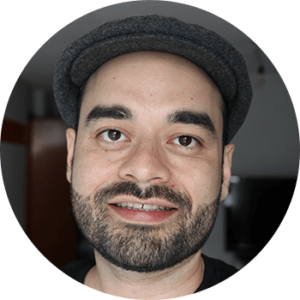 Horacio Guevara studied anthropology at Guadalajara University and has coordinated research teams for various projects focused on gangs and violence reduction within the College of Jalisco (COLJAL) in Guadalajara and Zapopan. He has implemented social intervention projects for government crime prevention programs. He has worked as Dr. Bia Labate’s research assistant at the Center for Research and Higher Studies in Social Anthropology (CIESAS) from 2015 to 2020. Since 2017 Horacio has been Chacruna’s Project Coordinator. He has helped organize all of Dr. Labate’s and Chacruna’s conferences since 2015, and oversees a range of administration and operations for many of Chacruna’s core programs.
Horacio Guevara studied anthropology at Guadalajara University and has coordinated research teams for various projects focused on gangs and violence reduction within the College of Jalisco (COLJAL) in Guadalajara and Zapopan. He has implemented social intervention projects for government crime prevention programs. He has worked as Dr. Bia Labate’s research assistant at the Center for Research and Higher Studies in Social Anthropology (CIESAS) from 2015 to 2020. Since 2017 Horacio has been Chacruna’s Project Coordinator. He has helped organize all of Dr. Labate’s and Chacruna’s conferences since 2015, and oversees a range of administration and operations for many of Chacruna’s core programs.
Development and Operations Officer
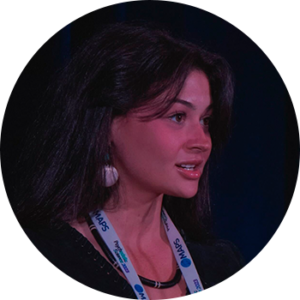
Conference Producer
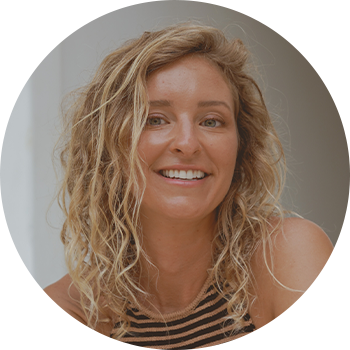
Sasha Dimitrevic believes that the most impactful success comes from a deliberate, collective effort, weaving many threads together to form a beautiful whole. Contributing from this cooperative mindset, she launches and accelerates aligned pursuits and experiences which draw people together and respect the earth. Her studies in economics, anthropology and art curation in Sydney, Australia evolved into a lifelong passion for embracing diverse perspectives and patterns, inspiring the desire to create experiences, communities and businesses all over the world. Her own ventures span a broad spectrum of community building, hospitality execution, real estate development, art advising and curation, event production, product invention and patenting and are all linked by an underlying drive to bring people together with intention, respect, and ecological awareness in order to rise together. She is the producer of Chacruna’s Bay Area’s Annual Spring Conference on Plant Medicines & Psychedelic Science, Psychedelic Culture.
Education Program Associate
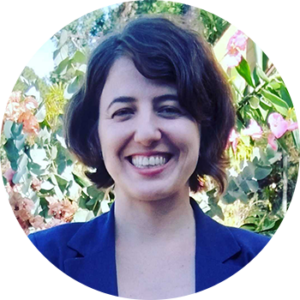 Lígia Duque Platero is Chacruna’s Education Program Associate. She is a queer, cisgender Brazilian woman. She has an interdisciplinary background in history, anthropology and Latin American studies. She holds a bachelor’s degree in history (2005) and a history teacher training qualification (2006) from the University of São Paulo (USP), in Brazil. She has a master’s degree in Latin American Studies from the National Autonomous University of Mexico (UNAM – 2012) in Mexico City, addressing public policies in relation to Indigenous peoples and Indigenous education in Brazil and Mexico from the 1940s-1970s. She has a doctorate in humanities, with an emphasis on cultural anthropology (2018), from the Federal University of Rio de Janeiro (UFRJ), in Brazil. Her PhD looked at the cultural transformations and exchanges amid the alliance between the Yawanawá Indigenous people and an urban church of Santo Daime. Her main research focus areas are: ayahuasca, Santo Daime, sacred plants, shamanic tourism, Yawanawá (Pano) people, Indigenous policies and human rights in Brazil and Mexico. She is a research associate at the Interdisciplinary Group for Psychoactive Studies (NEIP) and at the Laboratory for the History of Religious Experiences (UFRJ/IFCS) in Brazil.
Lígia Duque Platero is Chacruna’s Education Program Associate. She is a queer, cisgender Brazilian woman. She has an interdisciplinary background in history, anthropology and Latin American studies. She holds a bachelor’s degree in history (2005) and a history teacher training qualification (2006) from the University of São Paulo (USP), in Brazil. She has a master’s degree in Latin American Studies from the National Autonomous University of Mexico (UNAM – 2012) in Mexico City, addressing public policies in relation to Indigenous peoples and Indigenous education in Brazil and Mexico from the 1940s-1970s. She has a doctorate in humanities, with an emphasis on cultural anthropology (2018), from the Federal University of Rio de Janeiro (UFRJ), in Brazil. Her PhD looked at the cultural transformations and exchanges amid the alliance between the Yawanawá Indigenous people and an urban church of Santo Daime. Her main research focus areas are: ayahuasca, Santo Daime, sacred plants, shamanic tourism, Yawanawá (Pano) people, Indigenous policies and human rights in Brazil and Mexico. She is a research associate at the Interdisciplinary Group for Psychoactive Studies (NEIP) and at the Laboratory for the History of Religious Experiences (UFRJ/IFCS) in Brazil.
Expanded Learning Program Assistant

Lia Bennet has a passion for healthcare and environmental sustainability. She holds a Master’s degree in Public Health specializing in Integrative Medicine, coupled with a Bachelor’s in Environmental Science and a minor in Geology. She is also a certified kundalini yoga instructor. Her career journey began as a healthcare quality improvement grant coordinator at the American College of Physicians in Philadelphia. Lia’s results-oriented approach soon propelled her into influential roles, including Maintenance of Certification Director for the American Board of Addiction Medicine and Deputy Director of The Addiction Medicine Foundation. Her work played a key role in the formal acceptance of addiction medicine as a multi-specialty subspecialty in the United States. She then assumed the role of Curriculum Director and Outreach Academic Specialist with Michigan State University-College of Human Medicine. During her tenure in these roles, she crafted and accredited hundreds of learning modules, secured essential grant funding, and provided unwavering support for lifelong learning and career development. Her vision extends beyond the realm of healthcare, as her deep respect for the environment, plant medicines, and their cultural significance fuels her commitment to fostering a positive impact on both healthcare and environmental sustainability. She is currently Expanded Learning Program Assistant at the Chacruna Institute for Psychedelic Plant Medicines.
Ayahuasca Community Committee Coordinator
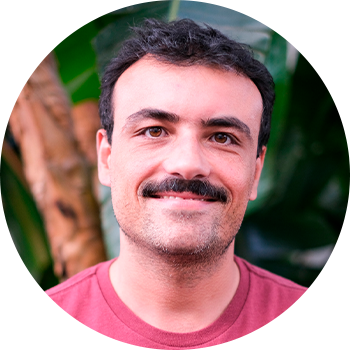
Dr. Henrique Fernandes Antunes has a Ph.D. in anthropology from the University of São Paulo (2019), with a research internship as a visiting scholar at the University of California, Berkeley. He holds a M.A. degree in anthropology from the University of São Paulo (2012), and a B.A. in social sciences (2006) and anthropology (2008) from the Universidade Estadual Paulista Júlio de Mesquita Filho (UNESP-FFC). He was a postdoctoral fellow at the Centre d’Étude des Mouvements Sociaux (CEMS) of the École des Hautes Études en Sciences Sociales (EHESS). He is also a member of the research group Religion in the Contemporary World at the Brazilian Center of Analysis and Planning (CEBRAP). He is the coordinator of the Ayahuasca Community Committee of the Chacruna Institute for Psychedelic Plant Medicines, and a researcher at the Interdisciplinary Group for Psychoactive Studies (NEIP). He specialized in the fields of urban anthropology, anthropology of religion, anthropology of secularism, and the sociology of public problems.
Managing Editor
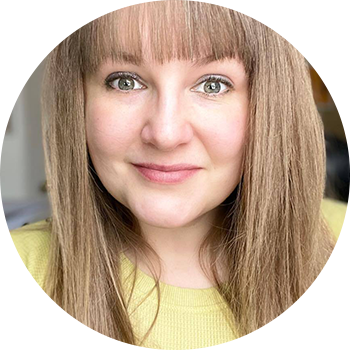
Jessica DeWitt is an environmental historian, editor, writer, and digital communications strategist. She earned her PhD in History from the University of Saskatchewan in 2019. Jessica is Chacruna Chronicles’ Managing Editor, where she focuses on editing and optimizing Chacruna’s articles for readability and digital reach. She is Editor-in-Chief and Social Media Editor for the Network in Canadian History and Environment (NiCHE). A passionate social justice advocate, she focuses on developing digital techniques and communications that bridge the divide between academia and the general public in order to democratize knowledge access. You can find out more about her and her freelance services at jessicamdewitt.com.
Media Content Producer
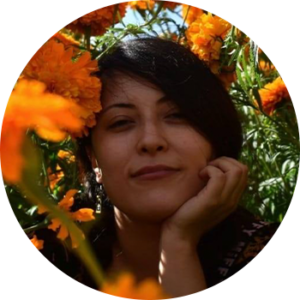 Karina Alvarez is a Mexican graphic designer, illustrator, photographer, and cacao/chocolate aficionado. Having a deep interest on topics about de-stigmatization of drugs and their consumers, she has done graphic design work and volunteered for organizations such as Espolea, ReverdeSer, and the Program of Substance Analysis. She has also collaborated with video production and editing for Drug Reporter. She worked for 5 years in the area of communication for the Mexican Commission of Defense and Promotion of Human Rights, an organization that deals with subjects such as enforced disappearance, migration, femicide, and land and territory defense. Karina is Chacruna’s Media Content Producer.
Karina Alvarez is a Mexican graphic designer, illustrator, photographer, and cacao/chocolate aficionado. Having a deep interest on topics about de-stigmatization of drugs and their consumers, she has done graphic design work and volunteered for organizations such as Espolea, ReverdeSer, and the Program of Substance Analysis. She has also collaborated with video production and editing for Drug Reporter. She worked for 5 years in the area of communication for the Mexican Commission of Defense and Promotion of Human Rights, an organization that deals with subjects such as enforced disappearance, migration, femicide, and land and territory defense. Karina is Chacruna’s Media Content Producer.
Social Media and Content Production Intern
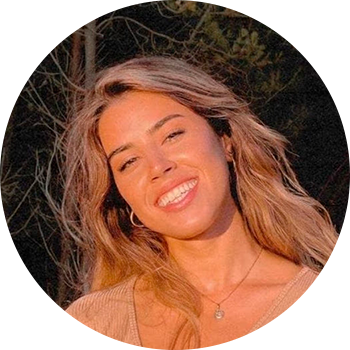
Giorgina Bononi is Chacruna’s Social Media and Content Production Intern. She is currently studying psychology and aims to pursue a career as a psychologist specializing in nature-informed and psychedelic therapies while advocating for cultural appreciation of Indigenous knowledge. She brings a unique perspective shaped by her upbringing between the U.S. and Argentina. Her early exposure to diverse cultures ignited her passion for social justice movements, including immigration issues and Indigenous rights. With experience in communications, she is eager to contribute to Chacruna’s mission and continue her personal and professional growth. She is currently based in Costa Rica.
Social Media and Content Production Intern
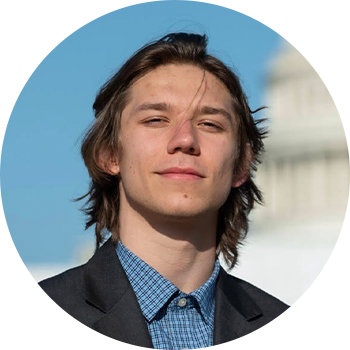
Michael Miarecki is Chacruna’s Social Media and Content Production Intern. He is a Polish American student pursuing studies in Statistics and Behavioral & Cognitive Neuroscience at the University of Florida. His involvement with the Students for Sensible Drug Policy organization has equipped him with experience in forming student-led coalitions focused on drug policy reform, harm reduction legislation, and psychedelic research. His interests include the history of psychoactive substance use, psychedelic neuroscience, and global drug policy. Currently, Michael is based in Warsaw, Poland, where he is collaborating with the Polish Drug Policy Network.
Education Coordinator Intern
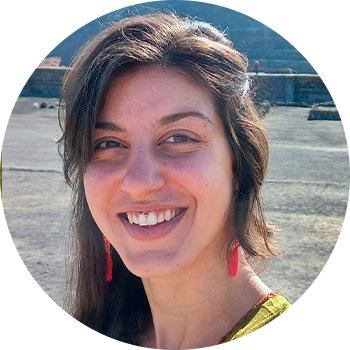
Paula Bizzi Junqueira is a Brazilian anthropologist with a master’s degree from the Center for Research and Higher Studies in Social Anthropology (CIESAS Southeast, Mexico) and a BA from the University of Brasília (UnB, Brazil). Her research addresses the intersections between health and spiritual practices and knowledge surrounding sacred plants in Latin America. She has carried out research around yagé in Colombia and peyote in Mexico and is currently living in Bogotá. Paula is Chacruna’s Education Coordinator Intern.
Research Associate
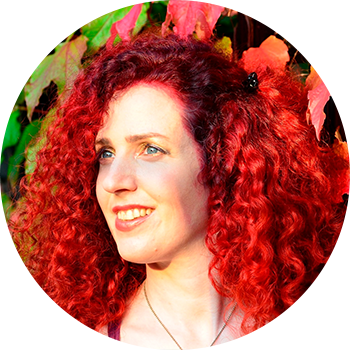
Anna (Anya) Ermakova has a motley background and broad research interests combining nature conservation, ethnobotany, neuroscience and psychiatry, interweaving and connecting these diverse paths through psychedelic science. Anya worked at the forefront of psychedelic research as a science officer at the Beckley Foundation, and has provided psychedelic welfare and harm reduction services with PsycareUK and Zendo. Deep love for nature and wildlife has motivated Anya to study biology at the University of Edinburgh, while a quest to understand altered states of consciousness has prompted her to specialise in neuroscience and later continued during her PhD in psychiatry at Cambridge, where she investigated the origins of psychosis. She then worked for the NHS, developing and trialing a new psychosocial intervention for psychosis. After a brief stint as a clinical trial manager, she had decided to pursue her passion for nature, by studying Conservation Science at Imperial College London, where she researched peyote ecology in Texas, USA. Anya is working as a research consultant in London. She is Research Associate at the Chacruna Institute for Psychedelic Plant Medicines and member of the Council Protection of Sacred Plants. She is also board member of the Cactus Conservation Institute.Today
Research Associate at Chacruna Latinoamérica in México
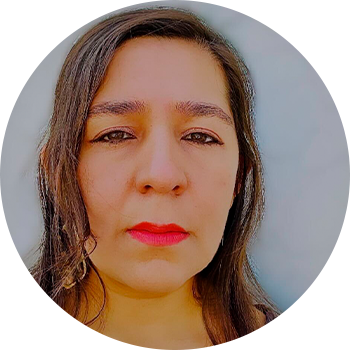
Nidia A. Olvera Hernández is a historian and anthropologist. She has a Ph.D. in modern and contemporary history at the Mora Institute in Mexico City. Nidia earned a B.A. in ethnohistory from the National School of Anthropology and History (ENAH) and a M.A. in social anthropology from the Center for Research and Higher Studies in Social Anthropology (CIESAS), in Mexico City. Her main areas of interest are the old and modern history of psychoactive substances and drug policy. She is co-editor with Bia Labate of the book Plantas Sagradas en México: tradición, religión y ritualidad [Sacred Plants in Mexico: Tradition, Religion and Ritual, COLSAN/Chacruna Institute 2023], and author of several peer-reviewed articles. She has worked as the Project Coordinator at the United Nations on a drug treatment program, has experience working at social research consultancies and has been a professor at the Autonomous University of Mexico City and ENAH. She collaborated as the Research Associate at Chacruna Latinoamérica in México. Currently, she is a Postdoctoral Researcher for the project, “Poison, Medicine or Magic Potion. Shifting Perspectives on Drugs in Latin America (1820-2020)” at Radboud University, Netherlands.
Communications Associate of Chacruna Latinoamérica in Mexico
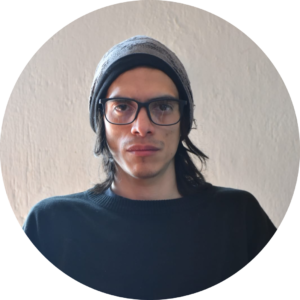 Ibrahim Gabriell is a communicologist and multidisciplinary researcher of the phenomenon of expanded states of consciousness. As a professor in the state of Chiapas (Mexico), he has taught both Communication studies at the Universidad de los Altos de Chiapas and Transpersonal Psychology at the Universidad Jose Vasconcelos. He is Communications Associate of Chacruna Latinoamérica in Mexico. He is also co-founder of Vía Synapsis, an academic society that organizes the National Congress on Psychoactive Substances at the National University of Mexico. He also served as an assistant editor for the publishing house Lunaria. Ibrahim is co-host of Mindsurf’s podcasts: MindSurf – Transformations of Consciousness and Psyche & Cosmos.
Ibrahim Gabriell is a communicologist and multidisciplinary researcher of the phenomenon of expanded states of consciousness. As a professor in the state of Chiapas (Mexico), he has taught both Communication studies at the Universidad de los Altos de Chiapas and Transpersonal Psychology at the Universidad Jose Vasconcelos. He is Communications Associate of Chacruna Latinoamérica in Mexico. He is also co-founder of Vía Synapsis, an academic society that organizes the National Congress on Psychoactive Substances at the National University of Mexico. He also served as an assistant editor for the publishing house Lunaria. Ibrahim is co-host of Mindsurf’s podcasts: MindSurf – Transformations of Consciousness and Psyche & Cosmos.
Associate Director of Chacruna Latinoamérica in Brazil
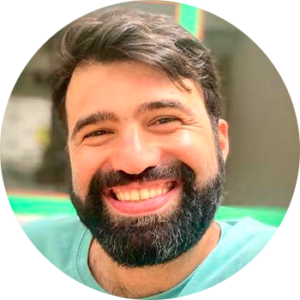
Associate Director at Chacruna Institute Canada
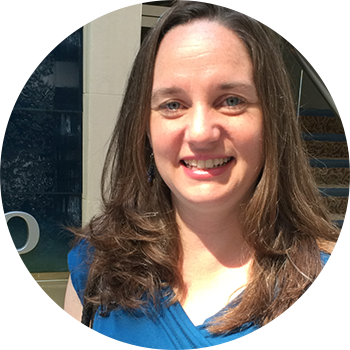
Erika Dyck is a Professor and a Canada Research Chair in the History of Health & Social Justice at the University of Saskatchewan. She is the author or co-author of several books, including: Psychedelic Psychiatry (2008); A Culture’s Catalyst: Historical Encounters with Peyote and the Native American Church in Canada (2016); Psychedelic Prophets: The Letters of Aldous Huxley and Humphry Osmond (2018); Mujeres y Psicodélicos (2022) and co-author of The Acid Room: the psychedelic trials and tribulations of Hollywood Hospital (2022). She sits on the Board of Directors of the Chacruna Institute for Psychedelic Plant Medicines. She is Associate Director of the Chacruna Institute in Canada.
Communications Team
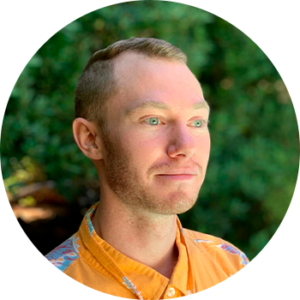 Trey Brasher is a pharmacology PhD student at UC Davis. Previously, Trey studied associations between psychedelics and positive psychology with a research team at Stockton University and fungal pant pathogens at Rutgers University. His academic research and expertise touch medicinal chemistry, psychopharmacology, drug policy, and neuroscience. Trey is a graphic designer for the Chacruna Institute for Psychedelic Plant Medicines. In addition, he works with Unlimited Sciences on psychedelic research initiatives, and in an art and design capacity for Grassroots California, and does freelance design. Trey currently working on the chemistry and pharmacology of novel psychoactive substances (NPS) and is looking forward to participating in the diversification of compounds being studied in clinical trials.
Trey Brasher is a pharmacology PhD student at UC Davis. Previously, Trey studied associations between psychedelics and positive psychology with a research team at Stockton University and fungal pant pathogens at Rutgers University. His academic research and expertise touch medicinal chemistry, psychopharmacology, drug policy, and neuroscience. Trey is a graphic designer for the Chacruna Institute for Psychedelic Plant Medicines. In addition, he works with Unlimited Sciences on psychedelic research initiatives, and in an art and design capacity for Grassroots California, and does freelance design. Trey currently working on the chemistry and pharmacology of novel psychoactive substances (NPS) and is looking forward to participating in the diversification of compounds being studied in clinical trials.
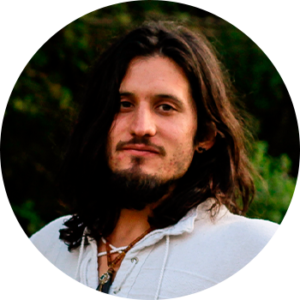
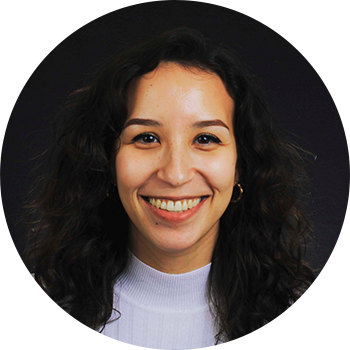
Luana Lourenço is a Portuguese Graphic designer based in Portugal. She has a bachelors degree in Project Management from Cape Peninsula University of Technology in South Africa. She currently works at Loyalsnap, a full service provider of automated marketing and customer retention strategies for fitness studios. She is also a graphic designer for the Chacruna Institute for Psychedelic Plant Medicines. She is passionate about people, culture and traveling.
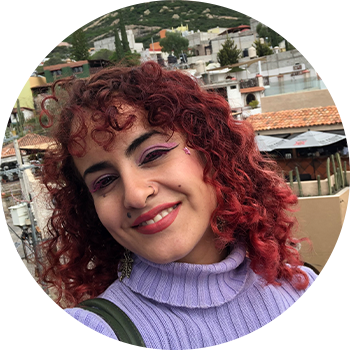
Fernanda Cervantes is a psychedelic activist, graphic designer, illustrator, and visual artist from Mexico City. She has an interest in sacred plants, altered states of consciousness, biology, psychonautics, healing, physics and psychology. She has collaborated with psychonauts and cannabis projects like Mindsurf, Thulio, Via Synapsis and she also works as a freelancer. She is a graphic designer for The Chacruna Institute for Psychedelic Plant Medicines.
Committees and Working Groups
Chacruna Chronicles
 Clancy Cavnar has a doctorate in clinical psychology (Psy.D.) from John F. Kennedy University in Pleasant Hill, CA. She currently works in private practice in San Francisco, and is Co-Founder and a member of the Board of Directors of the Chacruna Institute for Psychedelic Plant Medicines. She is also a research associate of the Interdisciplinary Group for Psychoactive Studies (NEIP). She combines an eclectic array of interests and activities as clinical psychologist, artist, and researcher. She has a master of fine arts in painting from the San Francisco Art Institute, a master’s in counseling from San Francisco State University, and she completed the Certificate in Psychedelic-Assisted Therapy program at the California Institute of Integral Studies (CIIS). She is author and co-author of articles in several peer-reviewed journals and co-editor, with Beatriz Caiuby Labate, of eleven books. For more information see: http://www.drclancycavnar.com
Clancy Cavnar has a doctorate in clinical psychology (Psy.D.) from John F. Kennedy University in Pleasant Hill, CA. She currently works in private practice in San Francisco, and is Co-Founder and a member of the Board of Directors of the Chacruna Institute for Psychedelic Plant Medicines. She is also a research associate of the Interdisciplinary Group for Psychoactive Studies (NEIP). She combines an eclectic array of interests and activities as clinical psychologist, artist, and researcher. She has a master of fine arts in painting from the San Francisco Art Institute, a master’s in counseling from San Francisco State University, and she completed the Certificate in Psychedelic-Assisted Therapy program at the California Institute of Integral Studies (CIIS). She is author and co-author of articles in several peer-reviewed journals and co-editor, with Beatriz Caiuby Labate, of eleven books. For more information see: http://www.drclancycavnar.com
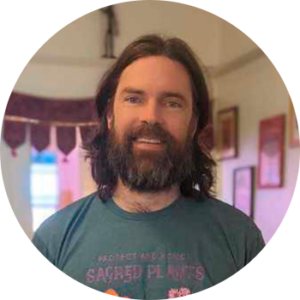
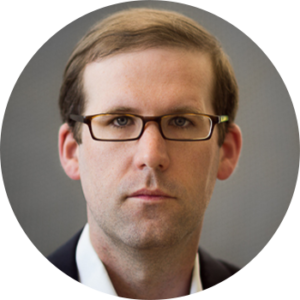
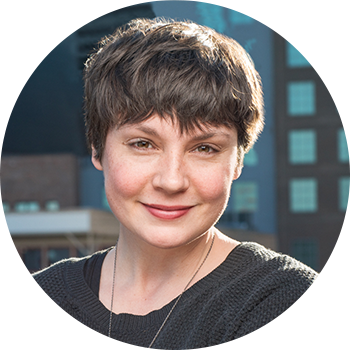
Ali McGhee, Ph.D, is a writer, storyteller, researcher, and teacher. She completed her PhD in English Literature from the University of Rochester in 2015. She is the People Operations Manager for 6AM City, Communications Manager for ArtsAVL, and Co-Director of the Enneagram School of Awakening, as well as an International Enneagram Association (IEA) Accredited Professional. Her work has been published in Dark Mountain, Slippery Elm Literary Journal, Holler, Scallywag, Lucid News, the MAPS Bulletin, WNC Magazine, and others. She is Vice-Chair of the City of Asheville’s Public Art and Cultural Commission and a member of Asheville-based storytelling venue Story Parlor’s “Story Board.” She is part of the Chacruna Chronicles editorial team. For more information, see: alimcgheewrites.com.
Racial Equity and Access Committee

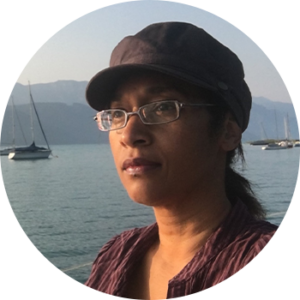 Dr. Sonya Faber graduated with a Masters in Neurobiology from Brown University after completing her undergraduate work at the University of Pennsylvania. She continued her graduate studies at New York University earning a PhD in molecular genetics with a thesis concentration in signal transduction. Over the course of the last 15 years, she has had the opportunity and privilege to contribute equally to both academic research institutes and commercial pharmaceutical development. She has worked in clinical operations for companies including, IQVIA, Covance and Sanofi-Aventis. Her interests lie in creating innovative solutions for projects which could benefit both patients and the scientific community, in part by connecting with top scientists, industry and regulatory agencies.In her academic roles, she assessed novel ideas and supported scientists in making these commercially viable while contributing to several original grants and research papers and patents. Her interest in protocol design, medical writing and project management, which she utilized in both pharma and biotech firms, included pre-clinical and clinical activities for phase II and III trials across multiple indications. She has a special interest in training the next generation of clinical researchers and has designed courses to teach scientific writing and Good Clinical Practice. Dr. Faber is member of the Board Directors of the Chacruna Institute for Psychedelic Plant Medicines and serves on Chacruna’s Racial Equity and Access Committee. Her engagement on Chacruna is on a volunteer basis and is based on her personal interest in the science of psychedelics, which has long been an interest of hers before taking her current position at Angelini Pharma. In the past two years, she has started an international collaboration with researchers at the University of Ottawa in Canada on several projects in the area of mental health disparities and social justice. She also served on the steering committee for the American Psychedelic Practitioners Association.
Dr. Sonya Faber graduated with a Masters in Neurobiology from Brown University after completing her undergraduate work at the University of Pennsylvania. She continued her graduate studies at New York University earning a PhD in molecular genetics with a thesis concentration in signal transduction. Over the course of the last 15 years, she has had the opportunity and privilege to contribute equally to both academic research institutes and commercial pharmaceutical development. She has worked in clinical operations for companies including, IQVIA, Covance and Sanofi-Aventis. Her interests lie in creating innovative solutions for projects which could benefit both patients and the scientific community, in part by connecting with top scientists, industry and regulatory agencies.In her academic roles, she assessed novel ideas and supported scientists in making these commercially viable while contributing to several original grants and research papers and patents. Her interest in protocol design, medical writing and project management, which she utilized in both pharma and biotech firms, included pre-clinical and clinical activities for phase II and III trials across multiple indications. She has a special interest in training the next generation of clinical researchers and has designed courses to teach scientific writing and Good Clinical Practice. Dr. Faber is member of the Board Directors of the Chacruna Institute for Psychedelic Plant Medicines and serves on Chacruna’s Racial Equity and Access Committee. Her engagement on Chacruna is on a volunteer basis and is based on her personal interest in the science of psychedelics, which has long been an interest of hers before taking her current position at Angelini Pharma. In the past two years, she has started an international collaboration with researchers at the University of Ottawa in Canada on several projects in the area of mental health disparities and social justice. She also served on the steering committee for the American Psychedelic Practitioners Association.
 Jamilah R. George, M.Div., a Detroit native, singer, dancer, and actress, obtained her Bachelor’s from the University of Michigan, her Master’s from Yale University, and is now pursuing a Ph.D. in Clinical Psychology at the University of Connecticut. Jamilah serves as a MAPS-sponsored phase 3 MDMA-assisted psychotherapy co-therapist whose site focuses on treatment-resistant posttraumatic stress among people of color. She is also a member of Chacruna’s Racial Equity and Access committee. Her research interests include obsessive-compulsive and related disorders, the psychological effects of discrimination and racial trauma on people of color, and the neurological underpinnings of these disorders. Jamilah’s passion for social justice and equality issues fuels her work as she advocates for the mental and holistic wellbeing of socially disenfranchised groups, including women, people of color, impoverished domestic and international communities, and the intersections therein.
Jamilah R. George, M.Div., a Detroit native, singer, dancer, and actress, obtained her Bachelor’s from the University of Michigan, her Master’s from Yale University, and is now pursuing a Ph.D. in Clinical Psychology at the University of Connecticut. Jamilah serves as a MAPS-sponsored phase 3 MDMA-assisted psychotherapy co-therapist whose site focuses on treatment-resistant posttraumatic stress among people of color. She is also a member of Chacruna’s Racial Equity and Access committee. Her research interests include obsessive-compulsive and related disorders, the psychological effects of discrimination and racial trauma on people of color, and the neurological underpinnings of these disorders. Jamilah’s passion for social justice and equality issues fuels her work as she advocates for the mental and holistic wellbeing of socially disenfranchised groups, including women, people of color, impoverished domestic and international communities, and the intersections therein.
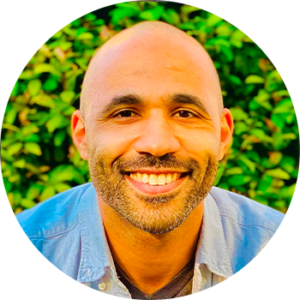
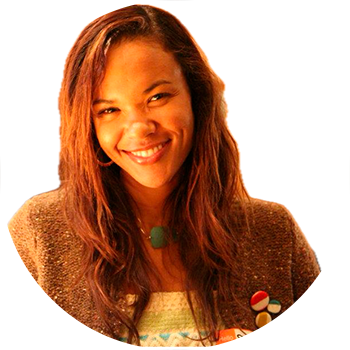
Dr. Stephanie Michael Stewart is a holistic psychiatrist who brings a spiritual, environmental, and social justice perspective to her work. After serving as Chief Resident of Psychiatry at Cedars-Sinai Medical Center, Dr. Stewart led LA County’s West Central Wellness Center where she developed innovative programs for communities of color that integrated evidence-based psychiatric treatments with complementary therapies. She then founded Worldwide Wellness, where she expanded her approach to incorporate travel, immersion in nature, Indigenous wisdom and, more recently, ketamine-assisted therapy. Dr. Stewart is currently developing a psychedelic-assisted therapy training program for psychiatric residents at historically black colleges and universities. Dr. Stewart holds a BS in Biology from Spelman College and an MD from Morehouse School of Medicine. She is a psychedelic advisor to multiple organizations in the US and Canada and is a member of Chacruna’s Racial Equity and Access Committee. She is of Black, White, and Native American descent.

 Monnica T. Williams is a clinical psychologist and Associate Professor at the University of Ottawa, in the School of Psychology, where she is the Canada Research Chair in Mental Health Disparities. She is also Clinical Director of the Behavioral Wellness Clinic. Her research focuses on African American mental health, culture, and psychopathology, and she has published over 100 scientific articles on these topics. Current projects include the assessment of race-based trauma, unacceptable thoughts in OCD, improving cultural competence in the delivery of mental health care services, and interventions to reduce racism. She gives diversity trainings nationally for clinical psychology programs, scientific conferences, and community organizations. She currently is Chair of their Academic Training & Education Standards (ATES). She is also a member of the Scientific Advisory Board of the International OCD Foundation, and co-founded their Diversity Council. Dr. Williams is a member of Chacruna’s Racial Equity and Access Committee.
Monnica T. Williams is a clinical psychologist and Associate Professor at the University of Ottawa, in the School of Psychology, where she is the Canada Research Chair in Mental Health Disparities. She is also Clinical Director of the Behavioral Wellness Clinic. Her research focuses on African American mental health, culture, and psychopathology, and she has published over 100 scientific articles on these topics. Current projects include the assessment of race-based trauma, unacceptable thoughts in OCD, improving cultural competence in the delivery of mental health care services, and interventions to reduce racism. She gives diversity trainings nationally for clinical psychology programs, scientific conferences, and community organizations. She currently is Chair of their Academic Training & Education Standards (ATES). She is also a member of the Scientific Advisory Board of the International OCD Foundation, and co-founded their Diversity Council. Dr. Williams is a member of Chacruna’s Racial Equity and Access Committee.
Council for the Protection of Sacred Plants
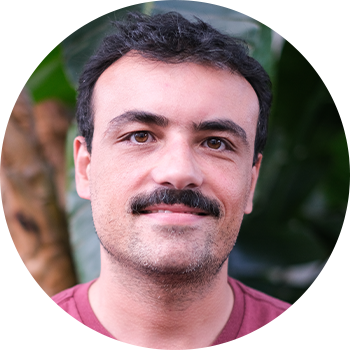
Dr. Henrique Fernandes Antunes has a Ph.D. in anthropology from the University of São Paulo (2019), with a research internship as a visiting scholar at the University of California, Berkeley. He holds a M.A. degree in anthropology from the University of São Paulo (2012), and a B.A. in social sciences (2006) and anthropology (2008) from the Universidade Estadual Paulista Júlio de Mesquita Filho (UNESP-FFC). He was a postdoctoral fellow at the Centre d’Étude des Mouvements Sociaux (CEMS) of the École des Hautes Études en Sciences Sociales (EHESS). He is also a member of the research group Religion in the Contemporary World at the Brazilian Center of Analysis and Planning (CEBRAP). He is the coordinator of the Ayahuasca Community Committee of the Chacruna Institute for Psychedelic Plant Medicines, and a researcher at the Interdisciplinary Group for Psychoactive Studies (NEIP). He specialized in the fields of urban anthropology, anthropology of religion, anthropology of secularism, and the sociology of public problems.
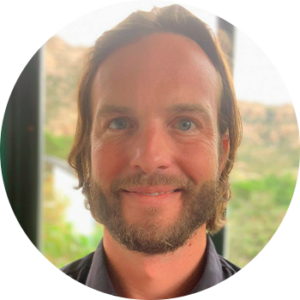 Chris Byrnes is a registered patent attorney at Calyx Law with particular interests in ethical IP licensing and IP commoning. After graduating with degrees in Physics and Religion from Denison University, he worked with academic institutions and human rights initiatives in South India and began doing art-based interfaith dialogues in the United States. He then earned a Master’s of Theological Studies in Religion, Ethics, and Politics from Harvard Divinity School, and began organizing interfaith communities to improve access to medicines and environmental sustainability. Through this work, he developed a deep interest in the politics and power of intellectual property and earned a JD from Georgetown University. After years in private practice doing patent litigation and IP risk management, Chris co-founded Corporate Accountability Lab and Performing Pro Arts Commons to conduct experiments with IP to protect human rights and the environment across global supply chains, working with artists and activists from around the world. He is an adjunct professor at IE University and a member of Chacruna’s Council for the Protection of Sacred Plants. He is based in La Pedriza, Spain.
Chris Byrnes is a registered patent attorney at Calyx Law with particular interests in ethical IP licensing and IP commoning. After graduating with degrees in Physics and Religion from Denison University, he worked with academic institutions and human rights initiatives in South India and began doing art-based interfaith dialogues in the United States. He then earned a Master’s of Theological Studies in Religion, Ethics, and Politics from Harvard Divinity School, and began organizing interfaith communities to improve access to medicines and environmental sustainability. Through this work, he developed a deep interest in the politics and power of intellectual property and earned a JD from Georgetown University. After years in private practice doing patent litigation and IP risk management, Chris co-founded Corporate Accountability Lab and Performing Pro Arts Commons to conduct experiments with IP to protect human rights and the environment across global supply chains, working with artists and activists from around the world. He is an adjunct professor at IE University and a member of Chacruna’s Council for the Protection of Sacred Plants. He is based in La Pedriza, Spain.
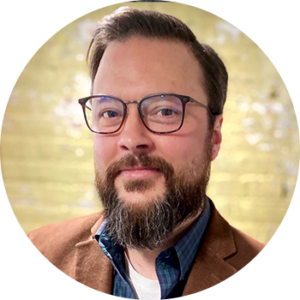 Jon Dennis is a lawyer and activist in the psychedelics ecosystem and a consultant at the firm Psychedelics Now. He is the co-host of “Eyes on Oregon,” a Psychedelics Today podcast exploring the developments in Oregon’s psilocybin program Measure 109. He serves on the Executive Committee of the Oregon State Bar Practice Section on Cannabis and Psychedelics and is a co-chair of its Psychedelics Subcommittee. He is a member of the Psychedelics Bar Association and sits on its Religious Use Committee. He is a founding member of the Entheogenic Practitioners Council of Oregon and a member of the Chacruna Institute’s Council for the Protection of Sacred Plants. Jon is the chief architect of the proposed regulatory framework for protecting community and religious use under Measure 109. Previous, Jon worked as a civil litigator and managed a nonprofit law office giving free legal assistance to people living in poverty. Jon has a BA in Religious Studies and practices law in Ontario, Oregon.
Jon Dennis is a lawyer and activist in the psychedelics ecosystem and a consultant at the firm Psychedelics Now. He is the co-host of “Eyes on Oregon,” a Psychedelics Today podcast exploring the developments in Oregon’s psilocybin program Measure 109. He serves on the Executive Committee of the Oregon State Bar Practice Section on Cannabis and Psychedelics and is a co-chair of its Psychedelics Subcommittee. He is a member of the Psychedelics Bar Association and sits on its Religious Use Committee. He is a founding member of the Entheogenic Practitioners Council of Oregon and a member of the Chacruna Institute’s Council for the Protection of Sacred Plants. Jon is the chief architect of the proposed regulatory framework for protecting community and religious use under Measure 109. Previous, Jon worked as a civil litigator and managed a nonprofit law office giving free legal assistance to people living in poverty. Jon has a BA in Religious Studies and practices law in Ontario, Oregon.
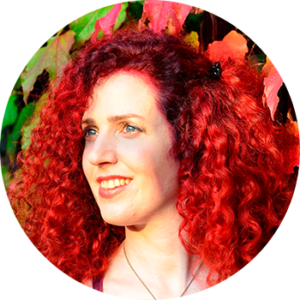 Anna (Anya) Ermakova has a motley background and broad research interests combining nature conservation, ethnobotany, neuroscience and psychiatry, interweaving and connecting these diverse paths through psychedelic science. Anya worked at the forefront of psychedelic research as a science officer at the Beckley Foundation, and has provided psychedelic welfare and harm reduction services with PsycareUK and Zendo. Deep love for nature and wildlife has motivated Anya to study biology at the University of Edinburgh, while a quest to understand altered states of consciousness has prompted her to specialise in neuroscience and later continued during her PhD in psychiatry at Cambridge, where she investigated the origins of psychosis. She then worked for the NHS, developing and trialing a new psychosocial intervention for psychosis. After a brief stint as a clinical trial manager, she had decided to pursue her passion for nature, by studying Conservation Science at Imperial College London, where she researched peyote ecology in Texas, USA. Anya is working as a research consultant in London. She is Research Associate at the Chacruna Institute for Psychedelic Plant Medicines and member of the Council Protection of Sacred Plants. She is also board member of the Cactus Conservation Institute.Today
Anna (Anya) Ermakova has a motley background and broad research interests combining nature conservation, ethnobotany, neuroscience and psychiatry, interweaving and connecting these diverse paths through psychedelic science. Anya worked at the forefront of psychedelic research as a science officer at the Beckley Foundation, and has provided psychedelic welfare and harm reduction services with PsycareUK and Zendo. Deep love for nature and wildlife has motivated Anya to study biology at the University of Edinburgh, while a quest to understand altered states of consciousness has prompted her to specialise in neuroscience and later continued during her PhD in psychiatry at Cambridge, where she investigated the origins of psychosis. She then worked for the NHS, developing and trialing a new psychosocial intervention for psychosis. After a brief stint as a clinical trial manager, she had decided to pursue her passion for nature, by studying Conservation Science at Imperial College London, where she researched peyote ecology in Texas, USA. Anya is working as a research consultant in London. She is Research Associate at the Chacruna Institute for Psychedelic Plant Medicines and member of the Council Protection of Sacred Plants. She is also board member of the Cactus Conservation Institute.Today
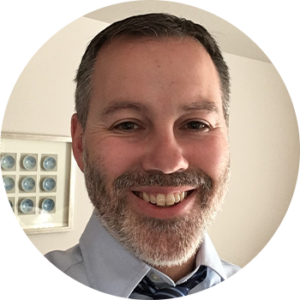 Kevin Feeney, PhD, JD, is a cultural anthropologist and lawyer currently working as a Program Director and Senior Lecturer in Interdisciplinary Studies – Social Sciences at Central Washington University. His primary research interests include examining legal and regulatory issues surrounding the religious and cultural use of psychoactive substances, with an emphasis on peyote and ayahuasca, and exploring modern and traditional uses of Amanita muscaria, with a specific focus on medicinal use and preparation practices. His research has been published in the International Journal of Drug Policy, Journalof Psychoactive Drugs, Human Organization, and Curare, among other books and journals. He is a current member of Chacruna’s Council for the Protection of Sacred Plants, and recently joined the Board of Advisors for Psyched Wellness, a Canadian health supplements company emphasizing medicinal mushrooms.
Kevin Feeney, PhD, JD, is a cultural anthropologist and lawyer currently working as a Program Director and Senior Lecturer in Interdisciplinary Studies – Social Sciences at Central Washington University. His primary research interests include examining legal and regulatory issues surrounding the religious and cultural use of psychoactive substances, with an emphasis on peyote and ayahuasca, and exploring modern and traditional uses of Amanita muscaria, with a specific focus on medicinal use and preparation practices. His research has been published in the International Journal of Drug Policy, Journalof Psychoactive Drugs, Human Organization, and Curare, among other books and journals. He is a current member of Chacruna’s Council for the Protection of Sacred Plants, and recently joined the Board of Advisors for Psyched Wellness, a Canadian health supplements company emphasizing medicinal mushrooms.
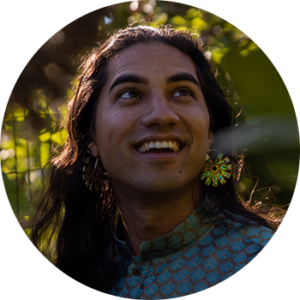 Ismail Lourido Ali is Director of Policy & Advocacy for the Multidisciplinary Association for Psychedelic Studies (MAPS), presently sits on the Board of Directors for Alchemy Community Therapy Center, and is a co-founder of the Psychedelic Bar Association. Previously Ismail has served as Chair of the Students for Sensible Drug Policy (SSDP) Board of Directors, and has worked for the ACLU of Northern California’s Criminal Justice & Drug Policy Project. Ismail is a member of Chacruna’s Council for the Protection of Sacred Plants.
Ismail Lourido Ali is Director of Policy & Advocacy for the Multidisciplinary Association for Psychedelic Studies (MAPS), presently sits on the Board of Directors for Alchemy Community Therapy Center, and is a co-founder of the Psychedelic Bar Association. Previously Ismail has served as Chair of the Students for Sensible Drug Policy (SSDP) Board of Directors, and has worked for the ACLU of Northern California’s Criminal Justice & Drug Policy Project. Ismail is a member of Chacruna’s Council for the Protection of Sacred Plants.
 Martha J. Hartney is a private practice attorney in Colorado. She has a J.D. from the University of Denver College of Law. Her firm, Hartney Law, is a Boulder favorite, receiving the “Best of the West/Law Firm” award six years in a row. She was named a SuperLawyers Rising Star in 2020 and has published and presented on the art and science of death and dying for more than a decade. Martha is a certified death doula and the first attorney to be admitted to and graduate from the CIIS Certificate in Psychedelic Therapies and Research program. Martha is also a mediator and has served as a guardian ad litem. She found plant medicines later in life—becoming a drug policy reform advocate after experiencing profound spiritual healing through our plant teachers. She champions the religious use of ayahuasca; and advocates for excellent standards of care, best practices, integration work, and weaving of modern trauma science with the powerful indigenous practices being stewarded into the western world. Martha lives with her partner and has two grown sons. She is a member of Chacruna’s Council for the Protection of Sacred Plants and the first steward of the Religious Use Subcommittee of the Psychedelic Bar Association.
Martha J. Hartney is a private practice attorney in Colorado. She has a J.D. from the University of Denver College of Law. Her firm, Hartney Law, is a Boulder favorite, receiving the “Best of the West/Law Firm” award six years in a row. She was named a SuperLawyers Rising Star in 2020 and has published and presented on the art and science of death and dying for more than a decade. Martha is a certified death doula and the first attorney to be admitted to and graduate from the CIIS Certificate in Psychedelic Therapies and Research program. Martha is also a mediator and has served as a guardian ad litem. She found plant medicines later in life—becoming a drug policy reform advocate after experiencing profound spiritual healing through our plant teachers. She champions the religious use of ayahuasca; and advocates for excellent standards of care, best practices, integration work, and weaving of modern trauma science with the powerful indigenous practices being stewarded into the western world. Martha lives with her partner and has two grown sons. She is a member of Chacruna’s Council for the Protection of Sacred Plants and the first steward of the Religious Use Subcommittee of the Psychedelic Bar Association.

 Sean T. McAllister is an attorney specializing in the intersection of regulatory and corporate law, and also is an experienced commercial litigator. He has been a leader in the emerging industries of cannabis, hemp, and psychedelic medicines. Sean is licensed to practice law in Colorado and California. His work in psychedelics has included: Advised clients on what is allowed in cities that have decriminalized psychedelics; Advised clients looking to obtain a religious exemption from criminal law for the use of psychedelics under the Religious Freedom Restoration Act; Seeking DEA licensure for companies to manufacture Schedule I drugs lawfully in the United States; Steering committee member on Colorado’s Natural Medicine Health Act; Executive Officer of the Denver Psilocybin Mushroom Policy Review Panel, 2020; Co-counsel for Church of the Eagle and the Condor in a lawsuit against DEA to gain recognition as an ayahuasca church; General Counsel for of the non-profit organization Zendo; member of the Board of Directors for the Chacruna Institute for Psychedelic Plant Medicines and of Chacruna’s Council for the Protection of Sacred Plants.
Sean T. McAllister is an attorney specializing in the intersection of regulatory and corporate law, and also is an experienced commercial litigator. He has been a leader in the emerging industries of cannabis, hemp, and psychedelic medicines. Sean is licensed to practice law in Colorado and California. His work in psychedelics has included: Advised clients on what is allowed in cities that have decriminalized psychedelics; Advised clients looking to obtain a religious exemption from criminal law for the use of psychedelics under the Religious Freedom Restoration Act; Seeking DEA licensure for companies to manufacture Schedule I drugs lawfully in the United States; Steering committee member on Colorado’s Natural Medicine Health Act; Executive Officer of the Denver Psilocybin Mushroom Policy Review Panel, 2020; Co-counsel for Church of the Eagle and the Condor in a lawsuit against DEA to gain recognition as an ayahuasca church; General Counsel for of the non-profit organization Zendo; member of the Board of Directors for the Chacruna Institute for Psychedelic Plant Medicines and of Chacruna’s Council for the Protection of Sacred Plants.
 Joseph Rhea is an attorney in Palm Springs, California. Joseph grew up in eastern North Carolina and received his Ph.D. in sociology from Harvard. He taught in the areas of inequality and social movement organization at Harvard and Arizona State University. He is author of Race Pride and the American Identity (2001). As a lawyer, Joseph first represented indigent defendants and then became very involved in cannabis legalization in California. Joseph is a member of Chacruna’s Council for the Protection of Sacred Plants. Joseph is always eager to help with legal issues regarding safe access and he is particularly interested in those projects that address inequalities of access.
Joseph Rhea is an attorney in Palm Springs, California. Joseph grew up in eastern North Carolina and received his Ph.D. in sociology from Harvard. He taught in the areas of inequality and social movement organization at Harvard and Arizona State University. He is author of Race Pride and the American Identity (2001). As a lawyer, Joseph first represented indigent defendants and then became very involved in cannabis legalization in California. Joseph is a member of Chacruna’s Council for the Protection of Sacred Plants. Joseph is always eager to help with legal issues regarding safe access and he is particularly interested in those projects that address inequalities of access.
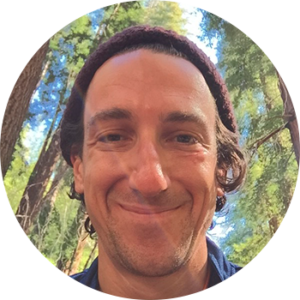 Graham Pechenik is a registered patent attorney, and the founder of Calyx Law. He has a BS from UC San Diego, where he chose his Cognitive Neuroscience and Biochemistry majors after his first psychedelic experiences inspired deep curiosity about the bases for changes in consciousness, and a JD from NYU, where he initially pursued interests in bioethics and cognitive liberty. After a decade at large law firms representing companies in the agricultural, chemical, pharmaceutical, biotech, and technology industries, including litigating patents at trial and on appeal, Graham started Calyx Law to work with cannabis and psychedelics ventures. Graham is also editor-at-large of Psilocybin Alpha, where he writes about psychedelics IP, provides data for patent trackers, and helps maintain a psychedelics legalization and decriminalization tracker, and he is a member of Chacruna’s Council for the Protection of Sacred Plants. He was raised in Oakland, CA, and currently lives in San Francisco.
Graham Pechenik is a registered patent attorney, and the founder of Calyx Law. He has a BS from UC San Diego, where he chose his Cognitive Neuroscience and Biochemistry majors after his first psychedelic experiences inspired deep curiosity about the bases for changes in consciousness, and a JD from NYU, where he initially pursued interests in bioethics and cognitive liberty. After a decade at large law firms representing companies in the agricultural, chemical, pharmaceutical, biotech, and technology industries, including litigating patents at trial and on appeal, Graham started Calyx Law to work with cannabis and psychedelics ventures. Graham is also editor-at-large of Psilocybin Alpha, where he writes about psychedelics IP, provides data for patent trackers, and helps maintain a psychedelics legalization and decriminalization tracker, and he is a member of Chacruna’s Council for the Protection of Sacred Plants. He was raised in Oakland, CA, and currently lives in San Francisco.
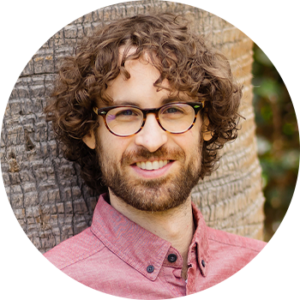

Rebecca Lee Whiting is an attorney and the founder of Epigram Legal P.C., where she provides legal services and advice to early-stage startups, founders, nonprofits, and individual employees and executives in the tech and psychedelic sectors. At Epigram, Rebecca continues to serve as the General Counsel and Corporate Secretary of Journey Colab, a psychedelic biotech startup based in San Francisco, where she implemented the company’s industry-first Reciprocity Trust, a perpetual purpose trust that holds 10% of the company’s founding equity for the benefit of Indigenous communities, for the ecological and cultural preservation of natural psychedelics, and equitable access to mental health care. Rebecca also serves as fractional General Counsel, corporate secretary, and general corporate counsel to other tech startups and advises and serves as a member of the Board of Directors of multiple 501(c)(3) nonprofit organizations. Over the course of her career, Rebecca has represented and advised a variety of individuals, organizations, and state and local public entities in contract negotiations, legislative matters, and high-stakes impact litigation at all levels of the state and federal courts, including the United States Supreme Court. A graduate of Yale College and the UC Berkeley School of Law, Rebecca began her legal career as a federal law clerk on the United States Court of Appeals for the Ninth Circuit and the United States District Court for the Northern District of California. Rebecca lives in San Francisco, California and is proud to serve as a member of Chacruna’s Council for the Protection of Sacred Plants.
Women, Gender Diversity, and Sexual Minorities Working Group
 Clancy Cavnar has a doctorate in clinical psychology (Psy.D.) from John F. Kennedy University in Pleasant Hill, CA. She currently works in private practice in San Francisco, and is Co-Founder and a member of the Board of Directors of the Chacruna Institute for Psychedelic Plant Medicines. She is also a research associate of the Interdisciplinary Group for Psychoactive Studies (NEIP). She combines an eclectic array of interests and activities as clinical psychologist, artist, and researcher. She has a master of fine arts in painting from the San Francisco Art Institute, a master’s in counseling from San Francisco State University, and she completed the Certificate in Psychedelic-Assisted Therapy program at the California Institute of Integral Studies (CIIS). She is author and co-author of articles in several peer-reviewed journals and co-editor, with Beatriz Caiuby Labate, of eleven books. For more information see: http://www.drclancycavnar.com
Clancy Cavnar has a doctorate in clinical psychology (Psy.D.) from John F. Kennedy University in Pleasant Hill, CA. She currently works in private practice in San Francisco, and is Co-Founder and a member of the Board of Directors of the Chacruna Institute for Psychedelic Plant Medicines. She is also a research associate of the Interdisciplinary Group for Psychoactive Studies (NEIP). She combines an eclectic array of interests and activities as clinical psychologist, artist, and researcher. She has a master of fine arts in painting from the San Francisco Art Institute, a master’s in counseling from San Francisco State University, and she completed the Certificate in Psychedelic-Assisted Therapy program at the California Institute of Integral Studies (CIIS). She is author and co-author of articles in several peer-reviewed journals and co-editor, with Beatriz Caiuby Labate, of eleven books. For more information see: http://www.drclancycavnar.com
 Justin Natoli, JD, LMFT (he/she/they) is a psychotherapist, hakomi practitioner, ketamine therapist, and retreat facilitator. In their private practice in Los Angeles, Justin specializes in depth and somatic psychotherapies, trauma, addiction, psychedelic integration, and working within kink, poly, and LGBTQIA+ communities. Justin also serves on the Chacruna Institute for Psychedelic Plant Medicines’ Women, Gender Diversity, and Sexual Minorities Working Group. They are honored to be a contributing author for Chacruna’s latest book, “Queering Psychedelics.” Justin received a JD with honors from the UCLA School of Law and a Master’s in Depth psychology from the Pacifica Graduate Institute. They have a certificate in psychedelic therapy and research from the California Institute of Integral Studies (CIIS) and are working towards a Ph.D. in Psychedelic Studies from the Awe Foundation and Ubiquity University. For more information, see: http://www.justinnatoli.com
Justin Natoli, JD, LMFT (he/she/they) is a psychotherapist, hakomi practitioner, ketamine therapist, and retreat facilitator. In their private practice in Los Angeles, Justin specializes in depth and somatic psychotherapies, trauma, addiction, psychedelic integration, and working within kink, poly, and LGBTQIA+ communities. Justin also serves on the Chacruna Institute for Psychedelic Plant Medicines’ Women, Gender Diversity, and Sexual Minorities Working Group. They are honored to be a contributing author for Chacruna’s latest book, “Queering Psychedelics.” Justin received a JD with honors from the UCLA School of Law and a Master’s in Depth psychology from the Pacifica Graduate Institute. They have a certificate in psychedelic therapy and research from the California Institute of Integral Studies (CIIS) and are working towards a Ph.D. in Psychedelic Studies from the Awe Foundation and Ubiquity University. For more information, see: http://www.justinnatoli.com
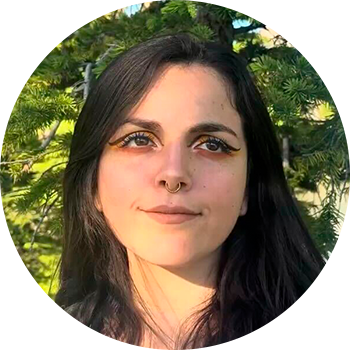
Alejandra Barajas (she/they/him) received her BA in Studio Art and Journalism from Beloit College. As an undergrad, she explored many topics ranging from art to philosophy to anthropology to journalism. She was a journalist for UP Mag, NY based publication, focused on street art and politics, where she helped give graffiti artists in Chicago a platform to share their voices in an effort to remove the stigma surrounding this underground culture. She holds a certificate in Psychedelic Assisted Therapies from Naropa University. She is Chacruna’s Program Coordinator and she is also part of Chacruna’s Women, Gender Diversity, and Sexual Minorities Working Group. She supports the production of research, books, chronicles, community forums, in-person events and conferences, courses and team’s speaking engagements. Her work helps accessibility for underrepresented communities and promoting indigenous voices. She is currently based in Washington, DC.
Ayahuasca Community Committee
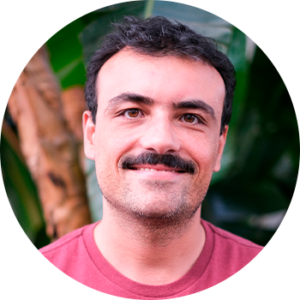
 Clancy Cavnar has a doctorate in clinical psychology (Psy.D.) from John F. Kennedy University in Pleasant Hill, CA. She currently works in private practice in San Francisco, and is Co-Founder and a member of the Board of Directors of the Chacruna Institute for Psychedelic Plant Medicines. She is also a research associate of the Interdisciplinary Group for Psychoactive Studies (NEIP). She combines an eclectic array of interests and activities as clinical psychologist, artist, and researcher. She has a master of fine arts in painting from the San Francisco Art Institute, a master’s in counseling from San Francisco State University, and she completed the Certificate in Psychedelic-Assisted Therapy program at the California Institute of Integral Studies (CIIS). She is author and co-author of articles in several peer-reviewed journals and co-editor, with Beatriz Caiuby Labate, of eleven books. For more information see: http://www.drclancycavnar.com
Clancy Cavnar has a doctorate in clinical psychology (Psy.D.) from John F. Kennedy University in Pleasant Hill, CA. She currently works in private practice in San Francisco, and is Co-Founder and a member of the Board of Directors of the Chacruna Institute for Psychedelic Plant Medicines. She is also a research associate of the Interdisciplinary Group for Psychoactive Studies (NEIP). She combines an eclectic array of interests and activities as clinical psychologist, artist, and researcher. She has a master of fine arts in painting from the San Francisco Art Institute, a master’s in counseling from San Francisco State University, and she completed the Certificate in Psychedelic-Assisted Therapy program at the California Institute of Integral Studies (CIIS). She is author and co-author of articles in several peer-reviewed journals and co-editor, with Beatriz Caiuby Labate, of eleven books. For more information see: http://www.drclancycavnar.com

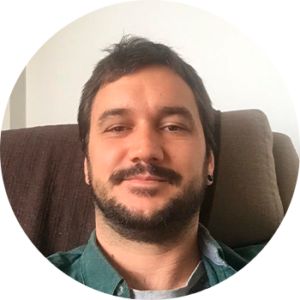 Bruno Ramos Gomes is a Brazilian psychologist, with Master’s degree in Public Health at the School of Public Health-USP, and a PhD in Public Health at University of Campinas, Brazil. In his masters, he researched the use of ayahuasca in the recovery of homeless people and drug users. In his PhD, he did a 12 month qualitative follow-up of patients treating drug dependence and depression. He has been helping patients integrate ibogaine and ayahuasca in their therapeutic processes for the last 12 years. He is a member of the ICARO (Interdisciplinary Cooperation for Ayahuasca Research and Outreach)-UNICAMP and Chacruna’s Ayahuasca Community Committee.
Bruno Ramos Gomes is a Brazilian psychologist, with Master’s degree in Public Health at the School of Public Health-USP, and a PhD in Public Health at University of Campinas, Brazil. In his masters, he researched the use of ayahuasca in the recovery of homeless people and drug users. In his PhD, he did a 12 month qualitative follow-up of patients treating drug dependence and depression. He has been helping patients integrate ibogaine and ayahuasca in their therapeutic processes for the last 12 years. He is a member of the ICARO (Interdisciplinary Cooperation for Ayahuasca Research and Outreach)-UNICAMP and Chacruna’s Ayahuasca Community Committee.
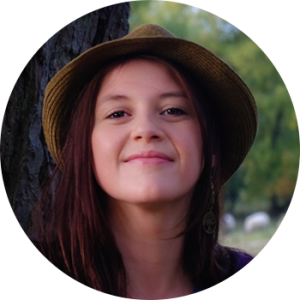
Advisory Board
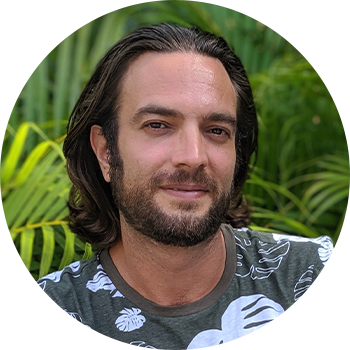
Adam Aronovich is a doctoral candidate in Anthropology and Communications at Universitat Rovira i Virgili in Catalonia, focusing on Medical Anthropology and Cultural Psychiatry. He is an active member of the Medical Anthropology Research Center (MARC) and has spent close to 5 years living and working in the Peruvian Amazon, conducting extensive fieldwork and qualitative research in collaboration with ICEERS, the Beckley Foundation, and, more recently, the Centre for Psychedelic Research at Imperial College. Beyond research, Adam has facilitated healing retreats and workshops in the Peruvian Amazon and, currently in Mexico. He is also a process facilitator and provides preparation and integration support in private practice and the co-founder and COO of Hidden Hand Media, a creative agency in the space of transformation and technology. Additionally, Adam sits on Chacruna’s Advisory Board.
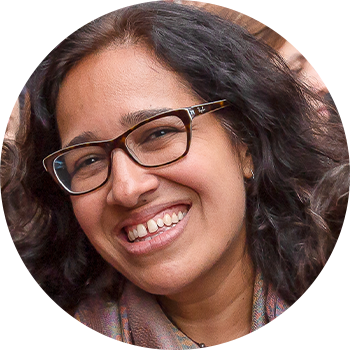
Artionka Capiberibe obtained her doctorate in social anthropology from the Museu Nacional-UFRJ in 2009. From 2006–2007, she was a visiting researcher at the Centre d’Enseignement et Recherche en Ethnologie Amérindienne (Paris X-Nanterre). Since 1996, she has been working with the Palikur people, an Amerindian people living in the Amazon region on the border of Brazil and French Guiana. The main themes of her research are corporalities, cosmologies, social changes, and religious conversions. This last theme is the focus of her book, Baptism of Fire: The Palikur and Christianity (2007). Capiberibe has also conducted research and published articles on Amazonian development issues. She is a professor in the Department of Anthropology at Unicamp (State University of Campinas), São Paulo, Brazil. In 2022, she was a visiting scholar at UC Berkeley and a visiting professor at at the University of Paris Nanterre. She sits on Chacruna’s Advisory Board.
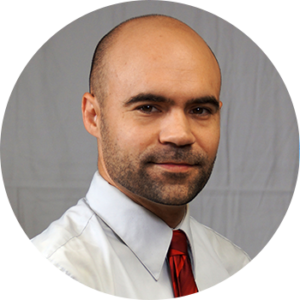 Brian T. Anderson is a psychiatrist at the University of California San Francisco where he studies psychedelic medicines. Brian has also been a member of the Núcleo de Estudos Interdisciplinares sobre Psicoativos (NEIP) since 2006 and sits in the Advisory Board of the Chacruna Institute’ for Psychedelic Plant Medicines. Over the past decade he has conducted ethnographic research with ayahuasca religions, 12-Step recovery groups, and other communities of substance users in North America, South America and Europe.
Brian T. Anderson is a psychiatrist at the University of California San Francisco where he studies psychedelic medicines. Brian has also been a member of the Núcleo de Estudos Interdisciplinares sobre Psicoativos (NEIP) since 2006 and sits in the Advisory Board of the Chacruna Institute’ for Psychedelic Plant Medicines. Over the past decade he has conducted ethnographic research with ayahuasca religions, 12-Step recovery groups, and other communities of substance users in North America, South America and Europe.

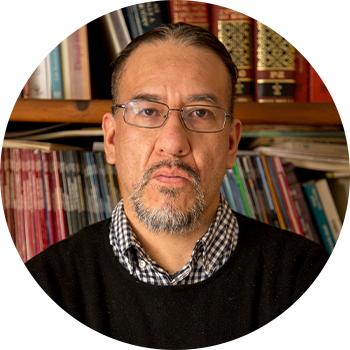
Osiris Sinuhé González Romero earned his PhD at Leiden University, in the Faculty of Archaeology-Heritage ofIndigenous Peoples. His dissertation “Tlamatiliztli: the wisdom of the Nahua people. Intercultural philosophy and right to land”, has been published by Leiden University Press. He was awarded the Coimbra Group Scholarship for Young Professors and Researchers from Latin American Universities in 2015. He has been involved in psychedelic research since 2008.He is also founder member of Via Synapsis, and academic society focused on the organization of the University Congress of Psychoactive Substances hosted by the Universidad Nacional Autónoma de México, Faculty of Philosophy since 2014. Currently he is a Postdoctoral researcher on cognitive freedom and psychedelic humanities at the University of Saskatchewan. He has been working on the book, New Essays on History and Philosophy of Psychedelics. His research interests include: philosophy of psychedelics, history of medicine, indigenous knowledge, decolonial theory, political philosophy, heritage studies, and aesthetics. Osiris sits on the Advisory Board of the Chacruna Institute for Psychedelic Plant Medicines.
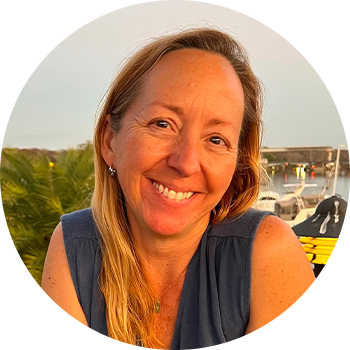
Emily Sterling sits on the Advisory Board of the Chacruna Institute for Psychedelic Plant Medicines. Emily has been helping philanthropists, foundations, and nonprofit CEOs and Boards to navigate new opportunities, complicated challenges, and big decisions for over 30 years. These include launching and managing philanthropic activities; forging a new strategy; defining a shift in business plan or organization structure; mapping a big growth plan or turnaround plan; navigating the transition of a founder or long-term CEO; rethinking and redesigning governance and boards; or launching a new collaboration or merger. She provides coaching services to CEOs and Board members, and can serve as an interim or fractional executive for philanthropists, foundations and nonprofits. Emily works with aligned groups by designing, facilitating and evolving donor circles, funder and nonprofit collaboratives, and collective impact initiatives that provide higher leverage toward outcomes. She also works with foundations and nonprofits with affiliates by developing and providing customized and cohort-based advisory services and capacity building to grantees and member organizations.Today
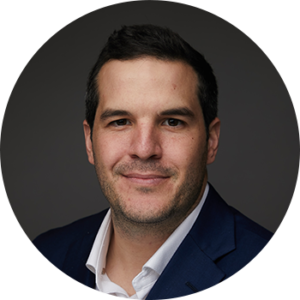 Jesse Gould, Founder of Heroic Hearts Project, was born in Santa Fe, New Mexico and grew up in New Smyrna Beach, FL. In 2009 he graduated from Cornell University with a degree in Economics. After working in investment banking for a short time he enlisted in the Army and became an Airborne Ranger for four years and three combat deployments. After struggling with severe anxiety for many years, he finally decided to go to an ayahuasca retreat which has had a profoundly positive effect on his anxiety and daily life. During the week-long retreat, he instantly saw the healing potential of the drink and knew that it could be a powerful tool in healing the mental struggles of his fellow veterans. This experience inspired him to found Heroic Hearts Project, an organization that connects veterans in need of healing with ayahuasca therapy. Since its founding, Heroic Hearts Project has quickly become one of the most prominent veteran voices pushing for psychedelic based therapies. He sits on the Advisory Board of the Chacruna Institute for Psychedelic Plant Medicines.
Jesse Gould, Founder of Heroic Hearts Project, was born in Santa Fe, New Mexico and grew up in New Smyrna Beach, FL. In 2009 he graduated from Cornell University with a degree in Economics. After working in investment banking for a short time he enlisted in the Army and became an Airborne Ranger for four years and three combat deployments. After struggling with severe anxiety for many years, he finally decided to go to an ayahuasca retreat which has had a profoundly positive effect on his anxiety and daily life. During the week-long retreat, he instantly saw the healing potential of the drink and knew that it could be a powerful tool in healing the mental struggles of his fellow veterans. This experience inspired him to found Heroic Hearts Project, an organization that connects veterans in need of healing with ayahuasca therapy. Since its founding, Heroic Hearts Project has quickly become one of the most prominent veteran voices pushing for psychedelic based therapies. He sits on the Advisory Board of the Chacruna Institute for Psychedelic Plant Medicines.
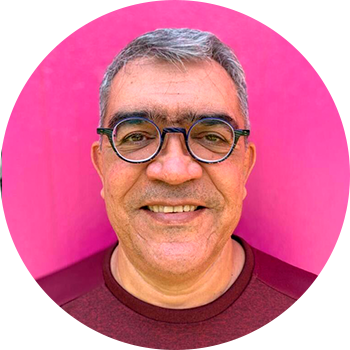
Marcelo Leite, PhD is a science journalist and book author based in São Paulo, Brazil. He is a columnist with Folha de S.Paulo, the daily newspaper that publishes his blog Virada Psicodélica (psychedelic turnabout). Marcelo dedicated most of his career to stories about genetics, ecology, evolution, Brazilian Indigenous peoples, the Amazon Forest and climate change, mainly. After a decade as editor at Folha’s Science desk, he spent a sabbatical year as a Nieman Fellow at Harvard in 1997/98. Upon his returning to Brazil, he did a PhD in Social Sciences at the State University of Campinas (UNICAMP). His thesis about the discourse and hype around the Human Genome Project was published in 2007 under the title “Promessas do Genoma” (genome’s promises). In 2017 he covered MAPS’ conference Psychedelic Science in Oakland, CA and since then plant medicines and mind-altering substances became his main subject as a journalist. In 2021 his book “Psiconautas – Viagens com a Ciência Psicodélica Brasileira” (Psychonauts – Trips with Brazilian Psychedelic Science) was published by Fósforo Editora. Marcelo is now dedicated to research for a book on jurema-preta (Mimosa tenuiflora), a DMT-containing plant endemic in Brazil’s Northeast at the center of a popular religion in the region, Jurema Sagrada. He sits in the Advisory Board of the Chacruna Institute for Psychedelic Plant Medicines, and often publishes articles with them.
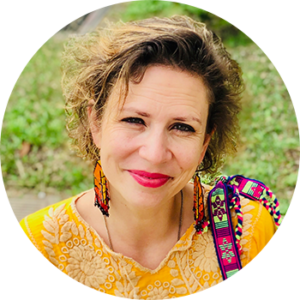 Diana Negrín Diana Negrín is a geographer, writer and curator based in the Bay Area and Guadalajara. She is the author of Racial Alterity, Wixarika Youth Activism and the Right to the Mexican City (University of Arizona Press 2019) and Grandes maestros del arte wixárika (Secretaría de Cultura Jalisco; Wixarika Research Center 2019). Currently, Negrín is a professor in Geography at UC Berkeley. She is part of the Board of Directors and she helps run the Wixarika Research Center, a non-profit that supports archival, cultural and ecological projects with Wixarika communities. She sits in the Advisory Board of the Chacruna Institute for Psychedelic Plant Medicines. Since 2018, Negrín has actively participated in discussions surrounding psychedelics, Indigenous territorial rights and cultural extraction.
Diana Negrín Diana Negrín is a geographer, writer and curator based in the Bay Area and Guadalajara. She is the author of Racial Alterity, Wixarika Youth Activism and the Right to the Mexican City (University of Arizona Press 2019) and Grandes maestros del arte wixárika (Secretaría de Cultura Jalisco; Wixarika Research Center 2019). Currently, Negrín is a professor in Geography at UC Berkeley. She is part of the Board of Directors and she helps run the Wixarika Research Center, a non-profit that supports archival, cultural and ecological projects with Wixarika communities. She sits in the Advisory Board of the Chacruna Institute for Psychedelic Plant Medicines. Since 2018, Negrín has actively participated in discussions surrounding psychedelics, Indigenous territorial rights and cultural extraction.
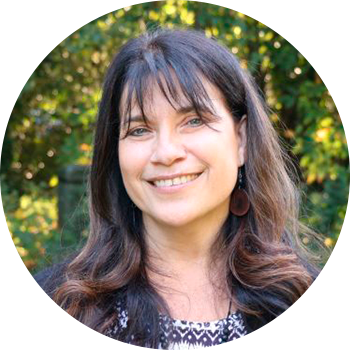
Daniela Peluso is a cultural anthropologist who has worked over the last two decades in Lowland South America, mostly with communities in Peru and Bolivia. She has been actively involved in various local efforts on issues relating to health, gender, indigenous urbanization and land-rights and works in close collaboration with indigenous and local organizations. Her publications focus mostly on indigenous ontologies, urbanization, violence and relatedness. She received her PhD in 2003 from Columbia University and is an Emeritus Fellow in social anthropology at the University of Kent. She sits on the Advisory Board of the Chacruna Institute for Psychedelic Plant Medicines.
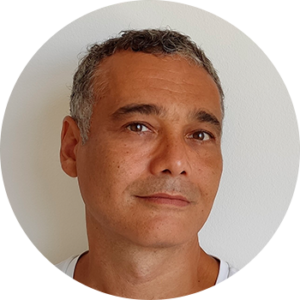 Sidarta Ribeiro is a Full Professor of Neuroscience and co-founder of the Brain Institute at the Universidade Federal do Rio Grande do Norte, Brazil. He holds a Bachelor’s degree in Biology from the Universidade de Brasília (1993), a Master’s degree in Biophysics from the Universidade Federal do Rio de Janeiro (1994), and a Ph.D. in Animal Behavior from the Rockefeller University (2000), with post-doctoral studies in Neurophysiology at Duke University (2005). Has experience in neuroethology, molecular neurobiology, and systems neurophysiology, with an interest in the following subjects: memory, sleep, and dreams; neuronal plasticity; vocal communication; symbolic competence in non-human animals; computational psychiatry; neuroeducation; psychedelics and drug policy. He is also involved in the public debate on medicinal uses and the legalization of cannabis in Brazil. He sits on the Advisory Board of the Chacruna Institute for Psychedelic Plant Medicines.
Sidarta Ribeiro is a Full Professor of Neuroscience and co-founder of the Brain Institute at the Universidade Federal do Rio Grande do Norte, Brazil. He holds a Bachelor’s degree in Biology from the Universidade de Brasília (1993), a Master’s degree in Biophysics from the Universidade Federal do Rio de Janeiro (1994), and a Ph.D. in Animal Behavior from the Rockefeller University (2000), with post-doctoral studies in Neurophysiology at Duke University (2005). Has experience in neuroethology, molecular neurobiology, and systems neurophysiology, with an interest in the following subjects: memory, sleep, and dreams; neuronal plasticity; vocal communication; symbolic competence in non-human animals; computational psychiatry; neuroeducation; psychedelics and drug policy. He is also involved in the public debate on medicinal uses and the legalization of cannabis in Brazil. He sits on the Advisory Board of the Chacruna Institute for Psychedelic Plant Medicines.
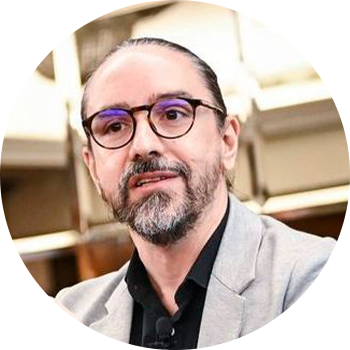
Thiago Rodrigues, PhD, is a political scientist acting as an Associate Professor at the Institute for Strategic Studies (INEST) of the Fluminense Federal University (UFF), in Rio de Janeiro, Brazil, where he teaches for the undergrad course in International Relations and the graduate program on Strategic Studies. Dr. Rodrigues has a PhD in Political Science at the Pontifical Catholic University of Sao Paulo (Brazil) and the Institut des Hautes Études de l’Amérique Latine (Sorbonne Nouvelle, France). He is an expert in Organized Crime studies, Global Drug Policy, Criminal Governance, and illegal armed groups in Latin America. He is also the head of the research group Security and Democracy in the Americas (SeDeAMERICAS) and holds a fellowship from the Brazilian National Council for the Development of Science and Technology (CNPq). Additionally, Dr. Rodrigues is a co-founder of the Interdisciplinary Group for Psychoactive Studies (NEIP) in Brazil and sits on Chacruna Institute Advisory Board. He has been publishing extensively on his issues of expertise in high-rank international journals as well in books and book chapters in English, Portuguese, Spanish, and French.

Britt Rollins is a career brand and communications strategist in the healthcare and pharmaceutical marketing sectors, known for his strategic acumen and innovative approach. As a Co-Founder of the National Psychedelics Association, he brings an extensive background in brand strategy and communication from his time at global agencies like Saatchi & Saatchi, DDB, and Real Chemistry. His expertise extends across key areas including pharmaceutical brand launches, FDA indication expansions, and rebranding initiatives. Britt’s career has spanned across major global cities like New York, London, and San Francisco, where he has left a significant impact. He also sits on the Chacruna Institute’s Advisory Board. In addition to his professional roles, Britt is deeply committed to mental health advocacy. His roles with the Educational Foundation of America, Veterans of War and Chacruna demonstrate his dedication to societal wellbeing. Since 2018, Britt has focused both his professional and philanthropic work to focus on improving mental health through psychedelic healing.
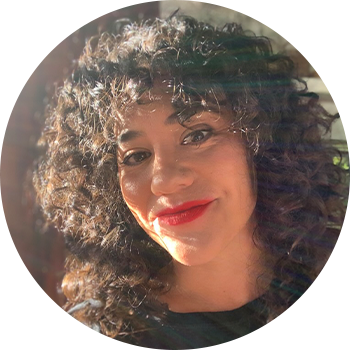
Julie Santos has 15 years of experience supporting organizations across the globe, fueled by her belief in the power of human connection. Stemmed from her work in disaster relief, managing global crisis, Julie connected local leaders to drive change while collaborating with major aid organizations and famous figures like Sean Penn. Within the field of Philanthropy, Julie developed frameworks for democratizing grant-making that was implemented in hundreds of grant making processes worldwide. In 2020, MAPS brought Julie on to build their HR and People Operations Department during a period of rapid growth and a global pandemic. Her work at MAPS inspired her to start Chicha Collective, a company that creates diverse and inclusive workspaces within the field of psychedelics and other emerging industries. Julie sits on the Advisory Board of the Chacruna Institute’ for Psychedelic Plant Medicines. She sees psychedelics as a tool that unites diverse human experiences to foster genuine human connections, which she believes, is the core for solving our biggest challenges.
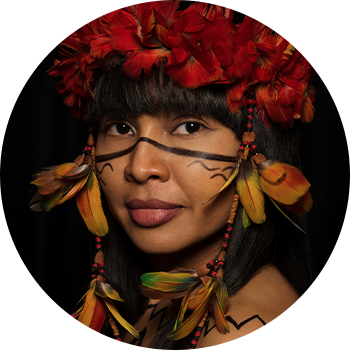
Adana Omágua Kambeba (Portuguese name Danielle Soprano Pereira) belongs to the Kambeba people, also known as the Omágua people, which translates as the “People of the Waters”. The Omágua people are present in the Peruvian, Colombian and Brazilian Amazon. Adana comes from the Brazilian state of Amazonas. She was born and raised between two worlds; the Indigenous and non-indigenous. She graduated in medicine from the Federal University of Minas Gerais (UFMG). As far as she is aware, she is the first Indigenous woman of her people to graduate in medicine in this university, in addition to being the first doctor to overturn convention and obtain authorization to register both her names, her Portuguese and Indigenous, with the Federal Council of Medicine (CFM). She currently works in the city of Belo Horizonte at the Sofia Feldman Hospital, a benchmark hospital in humanized childbirth and women’s health care, at the Novo Aarão Reis Health Center in Family and Community Medicine. She also works as a prescriber of medical cannabis. In addition to her practice as a doctor, she is a researcher and is dedicated to the study of the cultural identity of her people. Additionally, she is an educator, speaker, and actress who has appeared in films and miniseries. She is currently in the process of training as a pajé (Indigenous medicine person) to be able to act both as a doctor and pajé in the Amazon region in the future. Adana sits on the Advisory Board of the Chacruna Institute for Psychedelic Plant Medicines.
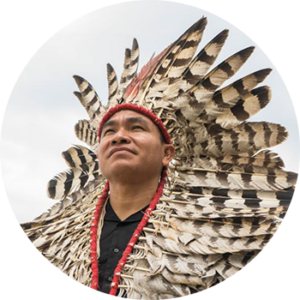 Leopardo Yawa Bane is the son of a traditional chief of the Huni Kuin (an indigenous group also known as the Cashinahua). Leopardo Yawa Bane is an international and national advocate of the preserving the ecological heritage of the native lands of his people. Born in the Cashinahua Reserve of the Jordan River in the State of Acre, Brazil, Bane and his brother Fabiano were sent from the villages to Brazilian cities at a young age by their father and chief, in order to learn new knowledge of the world outside the forest and to represent their people in tradition, heritage, and politics. Since then, Bane has completed his university studies, learning to speak Portuguese fluently, and has begun to represent his people nationally and internationally as an ambassador and healer. Bane and his people see the mystical and natural duality of the plants and how the spiritual world can be accessed through the plants found in their native areas. As is common with indigenous tribes around the world, and particularly in the Amazon, the Huni Kuin have a unique worldview, from creation to the beyond, derived from the wisdom of plants and their shared history. Bane grew up using and being trained in the use of medicinal plants by his grandfather. Twenty years ago, he started using different medicinal plants with non-indigenous people. Bane brings the knowledge of his ancestors, of his people, and of the forest.
Leopardo Yawa Bane is the son of a traditional chief of the Huni Kuin (an indigenous group also known as the Cashinahua). Leopardo Yawa Bane is an international and national advocate of the preserving the ecological heritage of the native lands of his people. Born in the Cashinahua Reserve of the Jordan River in the State of Acre, Brazil, Bane and his brother Fabiano were sent from the villages to Brazilian cities at a young age by their father and chief, in order to learn new knowledge of the world outside the forest and to represent their people in tradition, heritage, and politics. Since then, Bane has completed his university studies, learning to speak Portuguese fluently, and has begun to represent his people nationally and internationally as an ambassador and healer. Bane and his people see the mystical and natural duality of the plants and how the spiritual world can be accessed through the plants found in their native areas. As is common with indigenous tribes around the world, and particularly in the Amazon, the Huni Kuin have a unique worldview, from creation to the beyond, derived from the wisdom of plants and their shared history. Bane grew up using and being trained in the use of medicinal plants by his grandfather. Twenty years ago, he started using different medicinal plants with non-indigenous people. Bane brings the knowledge of his ancestors, of his people, and of the forest.
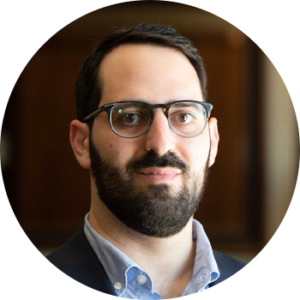
Brett Waters, Esq., is the co-founder and executive director of Reason for Hope and co-founder of the Veteran Mental Health Leadership Coalition. Both organizations focus on policy and advocacy for safe and affordable access to psychedelic therapies to prevent suicide and other deaths of despair. Brett spent five years as an antitrust litigation associate at Winston & Strawn in New York City before leaving the firm in November 2022 to focus on Reason for Hope’s mission full-time. The organization is named in memory of Brett’s mother, Sherrie Hope Waters, who he lost to suicide in 2018. He previously served as the Policy and Advocacy Chair for the American Foundation for Suicide Prevention, NYC Chapter. Brett has a J.D. from New York University School of Law. He currently sits on Chacruna’s Advisory Board.







